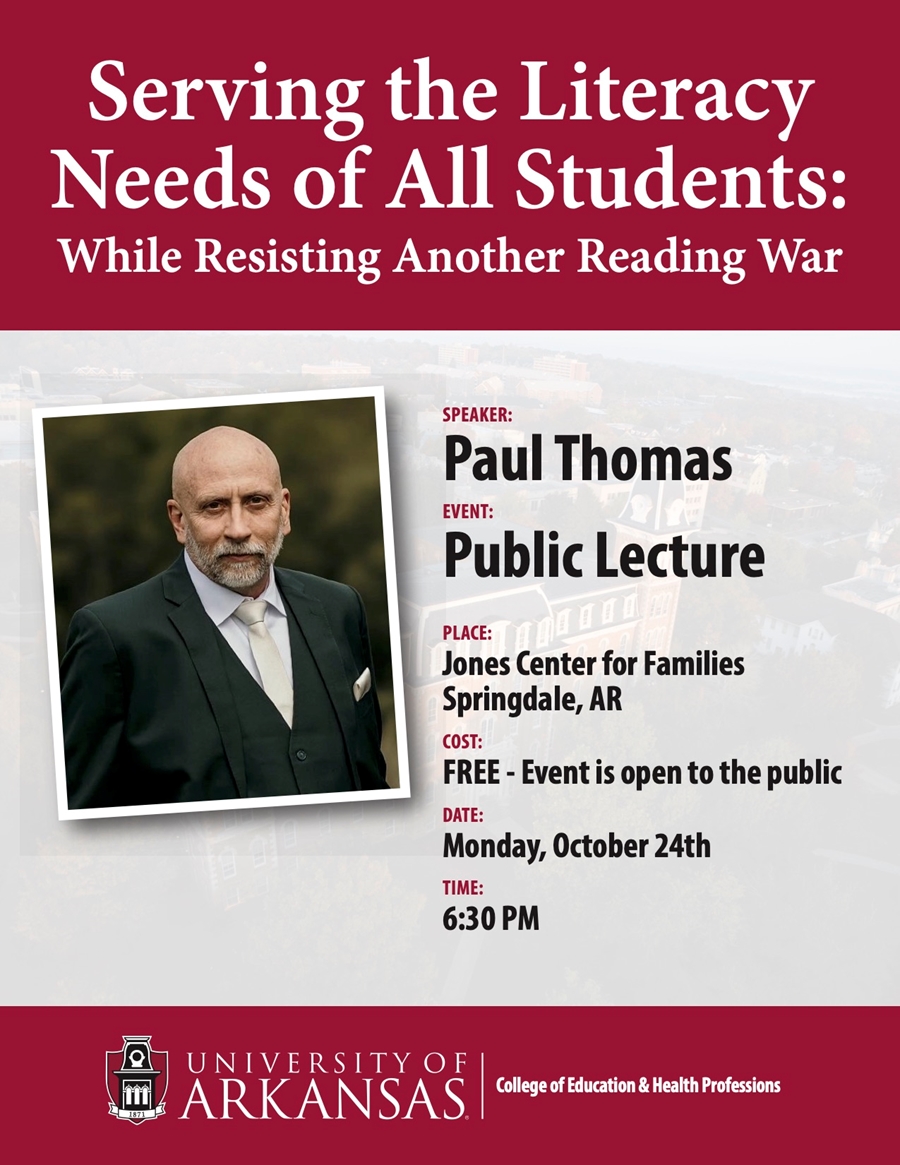How do students learn to read and how are students best taught to read are two of the questions that Paul Thomas of Furman University will take up with an audience at 6:30 p.m. Monday, Oct. 24, in the auditorium at the Jones Center for Families in Springdale. The talk, "Serving the Literacy Needs of All Students (while resisting another reading war)," is based on a recent report published by the National Education Policy Center and is geared toward educators and parents of reading-aged children. Admission is free and all are welcome.
In the NEPC report, Thomas provides context for the current situation: "Since 2018, the phrase 'science of reading' has been popularized as loosely defined shorthand for the broad and complex research base characterizing how children learn to read and how best to teach reading. Simplifying the issue for the public and for political readers and failing to acknowledge the full complement of research findings, prominent members of the education media have used the term when framing the contemporary debate — often as pro-phonics versus no phonics."
Thomas continues, "As a result of this selective characterization of the research base, advocates in the current movement have been extremely effective in lobbying for revised and new phonics-heavy reading legislation across most states in the U.S. As the movement has grown, scholars have been concurrently cautioning that advocacy and political responses based on this partial characterization of research have produced rigid and ultimately harmful policy and practices. In particular, the current science of reading reform movement has not served reading-policy decisions well because advocates and commercial vendors often exaggerate and over-simplify both the problems and solutions around reading achievement and instruction."
The executive summary of the report ends with four recommendations:
- Be wary of overstatements and oversimplifications within media and public advocacy, acknowledging concerns raised but remaining skeptical of simplistic claims about causes and solutions.
- Attend to known influences on measurable student reading achievement, including the socioeconomics of communities, schools and homes; teacher expertise and autonomy; and teaching and learning conditions.
- Recognize student-centered as an important research-supported guiding principle
but also acknowledge the reality that translating such research-based principles into classroom practice is always challenging. - Shift new reading policies away from prescription and mandates ("one-size-fits-all" approaches) and toward support for individual student needs and ongoing teacher-informed reform.
Thomas is professor of education at Furman University in Greenville, South Carolina. He's published more than 25 books including the recent, How to End the Reading Wars and Serve the Literacy Needs of All Students: A Primer for Parents, Policy Makers, and People Who Care (Information Age Press, 2022).
Topics
Contacts
Chris Goering, professor
Department of Curriculum and Instruction
479-575-4270, cgoering@uark.edu
Shannon Magsam, director of communications
College of Education and Health Professions
479-575-3138, magsam@uark.edu
